The Real History of Hamilton
Everyone knows that Lin-Manuel Miranda's Hamilton is an incredibly successful musical but what's often less considered is that Hamilton might be the most popular piece of historical fiction ever created. That's my own supposition but, honestly, what is the competition? Titanic, Saving Private Ryan and Braveheart are contenders that spring to mind but these are decades old so if nothing else I think Hamilton can be said to be the most influential historical fiction of the 21st century, and it reached that level before an official filmed version of the show even became available.
Take a moment to think about the fact that there is fanfiction about the founding fathers just because of this show.
Now if that's not legacy I don't know what is.
I think a lot of people, including myself, learn their history through fiction, and maybe you share that itch i get after I finish a historical film or show. I just need to learn what actually happened. To that purpose I started a podcast with two history buffs, and in season one we've covered things like The Irishman, 300, Gladiator and, yes, Hamilton. So I'm not a historian and in fact I state at the start of each episode of our podcast that I don't know anything about history, but through our conversation and background reading I've acquired a fair understanding of the goings on around the time of the American revolution and how it relates to Lin-Manuel Miranda's masterpiece.
So that's what we're talking about today: Life at a time of revolution.
Part One: Son of a Whore and a Scotsman
Alexander Hamilton was born in 1755 or 57 depending on who you trust. If you believe Hamilton himself it's 57 but there is reason to believe 55, and some people think that by making himself out to be younger, Hamilton hoped to have it easier to get an apprenticeship. What we know for certain is that he was born on the Caribbean island of Nevis.
His parents were Rachel Faucett and James Hamilton, described in Hamilton's opening track as "a whore and a Scotsman". James was certainly a Scotsman, the son of a Laird, but Rachel was not a prostitute, though the slur used by Burr in his opening narration of the musical is probably not a bad representation of what people would have thought at the time. She did, after all, get together with James Hamilton while still technically married to someone else, never mind the fact that she had been imprisoned by her husband for several months.
Alexander's early years play out much as described in the song; his father split and his mother passed away, leaving him orphaned and penniless at 13. Or possibly 11. He starts clerking, picking up a dislike of slavery from seeing how enslaved people are beaten, sold and dehumanized, and he writes a fabulous account of a hurricane, enough that money is collected to send him to the mainland for an education. He'd be arriving in 1772 as a teenager and to understand the world he landed in we're going to have to take a few steps back....
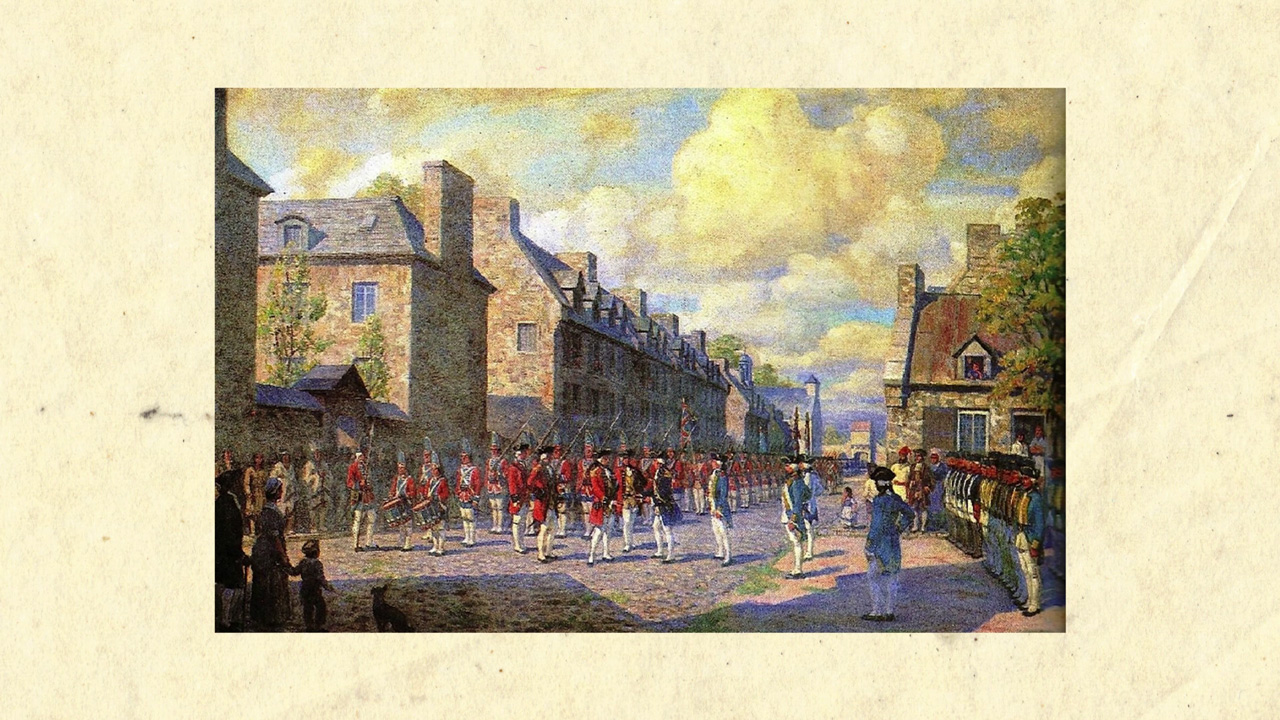
Part Two: What About Boston?
Of course what we regard now as the continental United States does not exist at this point. There are 13 British colonies, as well as colonies from other nations, set up under a mercantile government, meaning that they're run for the financial benefit of the homeland.
These were trading posts and treated as such, but what's essential is that they were highly successful trading posts. The population may be in the range of 2.5 to 3 million Europeans with an enslaved population that's hard to determine, but in the later 1790 census it's shown as about 700,000. They're not micromanaged by European powers, as it would be impossible to do so, and in fact there are constituent assemblies for the different colonies where wealthy white men are elected, in part honestly, probably so they've got something to do while their enslaved folk did all the hard work.
You can broadly split the colonies into the north, including Massachusetts, Connecticut, New Hampshire and Rhode island; the middle colonies, including Delaware, New York, New Jersey and Pennsylvania; and the southern colonies, Virginia, Maryland, North Carolina, South Carolina and Georgia. Out of those states, Virginia is undoubtedly the power house. They have the biggest population and the best land to grow tobacco, and enormous tracts of it to boot. It's no coincidence that most of the well-known profiles in the American revolution came from here. This is where the money is.
Because of the success of the various colonies, European powers are battling for supremacy in the Americas, which leads to what's known in the US as the French and Indian war (1754-1763), part of a larger war between Britain and France that Europeans would refer to as the 7-year war (1756-1763). This is a conflict carried out by the state militia of the British colonies VS. the state militia of the French colonies, and the various native groupings on either side. The French colonial forces are eventually defeated by the British colonial forces but the cost is significant. Britain is essentially bankrupt. So how can that be solved? With further taxes, of course!
They bring in a law called The Stamp Act which may not sound bad but its not just a tax on stamps, it's a tax on many kinds of printing that restricts them to only use paper with a stamp in the corner to show that the tax has been paid. This drives many small businesses in the colonies into bankruptcy and it's so severe that there are riots. The Stamp Act is denounced by public intellectuals such as Patrick Henry (the famous "give me liberty or give me death" guy) and there's a certain colonial militia leader who is also furious about it.
This all turns the 13 colonies into a tinderbox, and there are a couple of things that set it all off. In 1770 there is a massacre by British troops of civilians outside a courthouse in Boston. It started with a protest led by an agitation group called "The Sons of Liberty", of which Hercules Mulligan was a member, by the way. This was a group pushing for independence, one of their leaders being Sam Adams, the famous brewer and, perhaps aptly, someone throws a bottle that hits a British soldier. They open fire and five people are killed, six injured.
This courthouse massacre is referenced by Hamilton in Farmer Refuted in with the line "And what about Boston?" as a response to the farmer's claim that "Chaos and bloodshed are not a solution." What he's saying is, chaos and bloodshed is already here and we didn't start it.
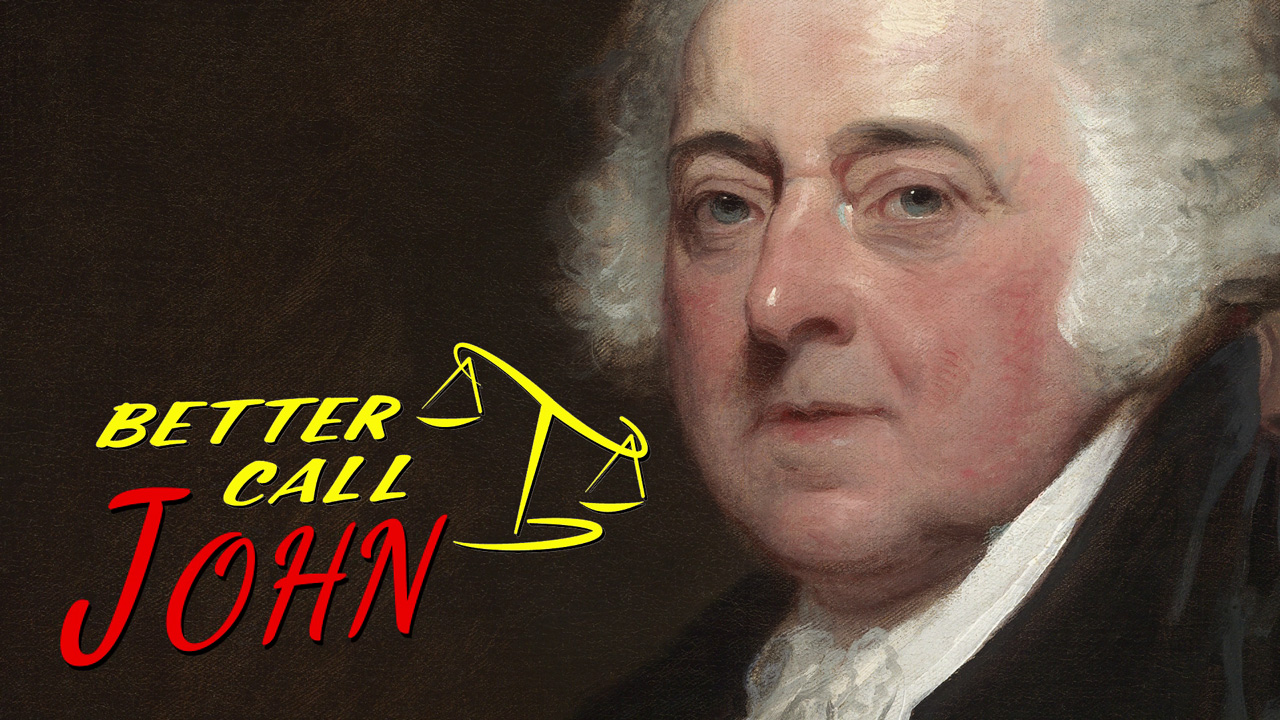
This becomes a massive scandal across the colonies and a lot of people call for these British troops to be hanged. Massachusetts holds a trial and the public defender brought in is none other than John Adams, who gets the troops off. No one is hanged and it's seen as an outrage by many; others think it's good that the rule of law has prevailed but either way the agitation does not stop - things continue to brew for a few years (excuse the pun) until the famous Boston Tea Party in 1773, where another group of American colonial agitators go to the Boston docks dressed up as indigenous Americans and they throw some tea in the sea. The British, as is their wont, go for a massive, costly over-reaction, sending thousands of troops across the sea, basically to put down a fairly minor riot.
Part Three: The Greatest City in the World
We've worked our way back to the year that Hamilton arrives in New York with brains to burn and nothing to lose. This is a part of the colonies where all the talk on the streets is of revolution, as depicted in the first few songs of the musical. The extremely wide circulation of Thomas Payne's wrote "Common Sense", which basically says that monarchy is nonsense, gives a good idea of the mood.
It's true that Hamilton was seeking an accelerated course of study at Princeton, as mentioned in Aaron Burr, Sir, but he does not get this course and nor does he punch the bursar. This is only in the musical because it rhymes with "Burr, Sir", and I personally wouldn't have it any other way. So he attends King's College, which has since renamed Columbia, presumably because of the decreasing popularity of, you know, kings. But the institution has held onto their original emblem which is why you'll see a crown in Columbia's crest to this day.
In New York, Hamilton boards with Hercules Mulligan, yes, the tailor's apprentice himself – though actually he would have been a full tailor at this point and he's a fair bit older than Hamilton. As we mentioned he's part of the Sons of Liberty and he definitely has an influence on young Alexander. Mulligan is a fascinating character who is now regarded as the forbearer of the American intelligence community. It's said that he used, among other things, his ability to drink a lot to get information out of people. Mulligan was born in Ireland and as someone who's lived in Ireland several years I can confirm that this is still very much the way Irish people do it when they want to get a secret out of a friend.
This might be a good point to mention that, as you probably assumed, Alexander Hamilton does not meet his crew of friends all in the same night. People in this musical are combined, as are situations. These could technically be called an inaccuracies but it's hardly deceptive. Most of the changes are along these lines; stylistic exaggerations that make sense within the context of the show.
While Hamilton is at King's College things are happening elsewhere that are about to give him his shot.
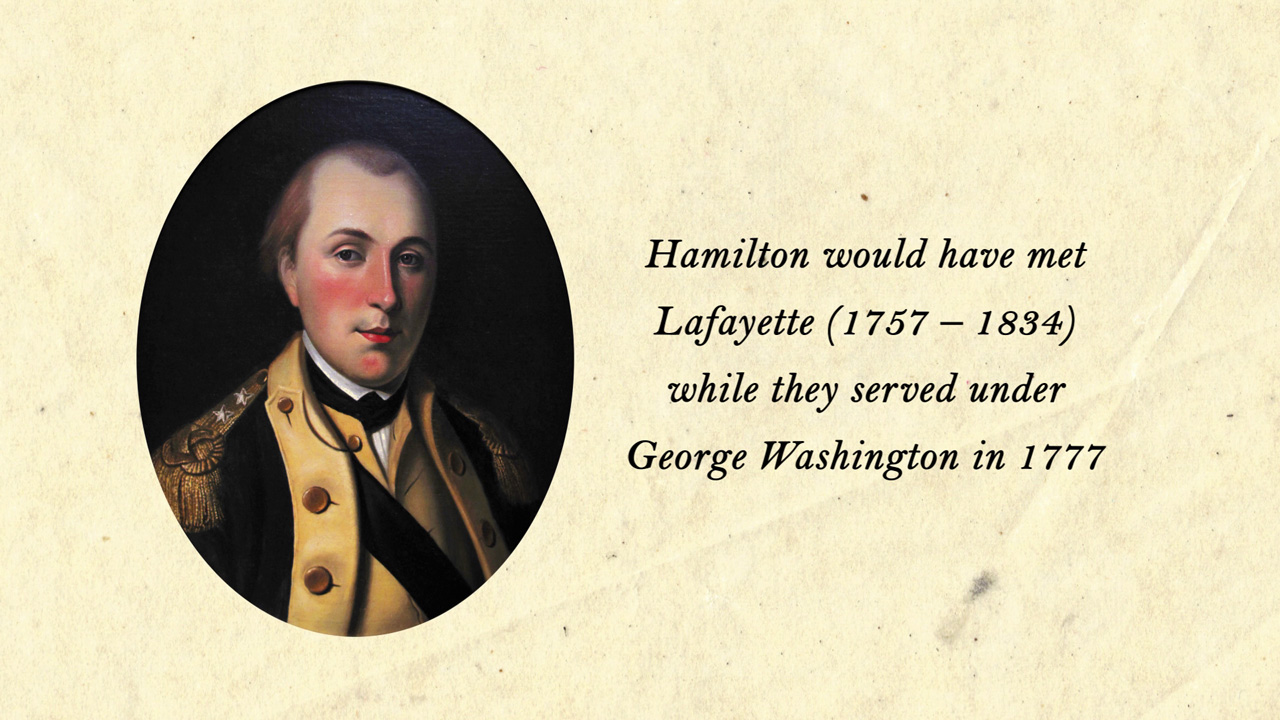
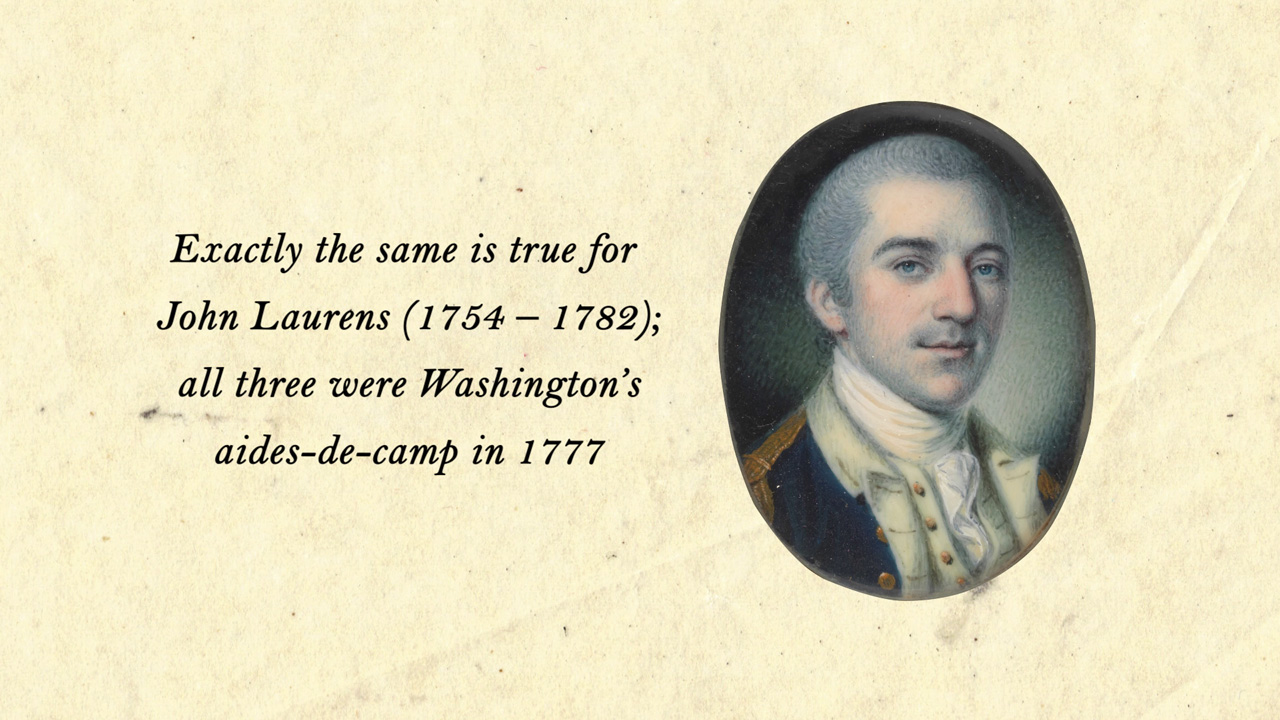
Part Four: The Room Where it Happens
The First Continental Congress was a collection of delegates from most of the 13 colonies, held in 1774 in Philadelphia, after the British navy instituted a blockade of Boston harbor and Parliament in Britain passed acts to take away Massachusetts' self governance following the Boston Tea party. It's not to be confused with the later Constitutional Convention that Hamilton was so excited to join.
This is where many of the men later given the title founding fathers come together and clash for the first time and, honestly, the more you read about the founding fathers the more you realise what a mess it all is. The United States were hardly formed as depicted in the paintings with wise men around a table saying "yes, this is now written and so it shall be forever remain." In reality it's a chaotic bundle of political compromises, and the founding fathers feel less like untouchable prophets and more like squabbling reality TV stars, which is part of why reading about them is so entertaining.
The Continental Congress eventually imposes an economic boycott on Britain and petition the king to repeal the acts of his parliament, reaffirming the colonies' loyalty to the British monarchy. This is pretty much ignored, and there's a Second Constitutional Congress the next year, sending another petition, which is a last ditch attempt to avoid war. The response is clear enough, a proclamation from King George III that pretty much says"just hand yourselves over, so I can hang you all." Which does the job of uniting the colonies better than any debate between delegates. Franklin has this great line where he says "We will either hang together or we will most assuredly hang separately"
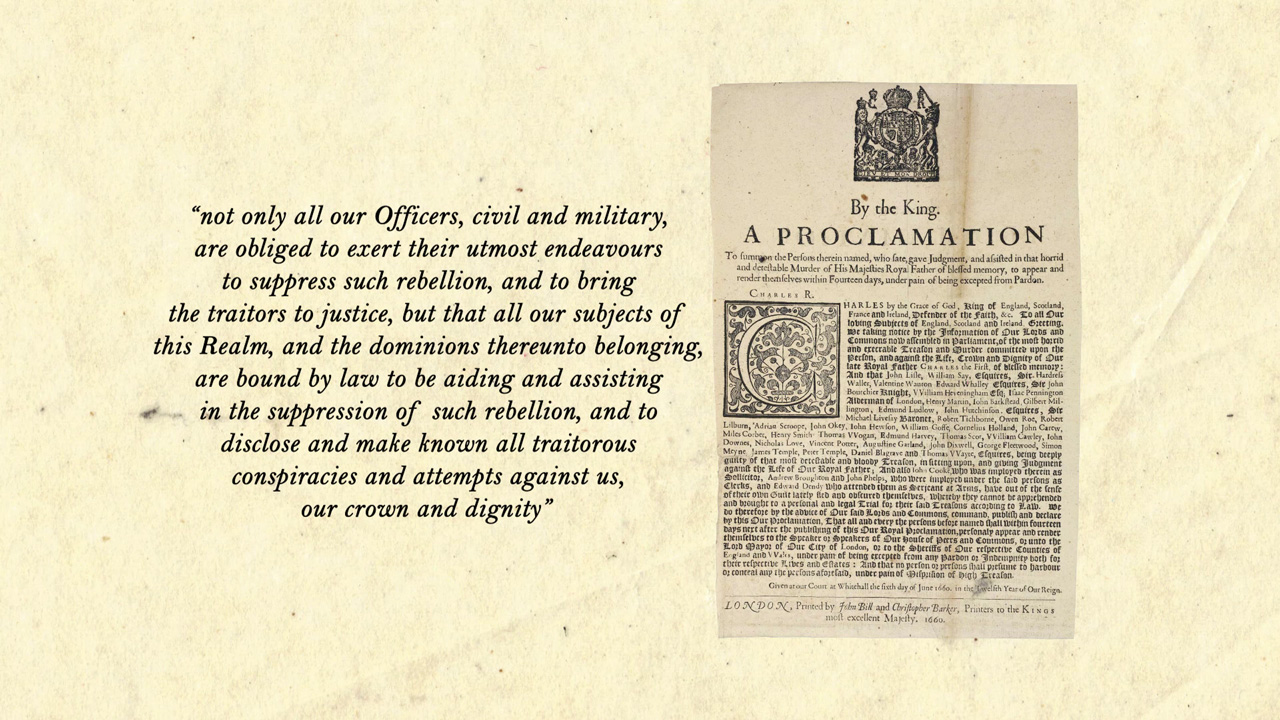
So John Adams wins the argument he's been making, that they need to adopt the militia as the army of the united colonies and fund them, so the question becomes "who do we appoint to lead them?" From the northern and middle colonies the thinking is that "well, they're adopting our militia as the army but we need them on board" so they actually put forward an eminent southerner as the leader of the army.
Washington is the one person who everyone considers beyond reproach - in modern terms he'd be the host of the reality show where all the other founding fathers are squabbling contestants. He's the central pillar who keeps it all together.
Part Five: Chaos and Bloodshed
I'm not going into great detail on the battles of the American Revolutionary War as there are others much more qualified to do so and this video is already pretty long anyway but there are a few key elements worth discussing in relation to Hamilton, the musical.
In Right Hand Man, we hear about how New York is taken over by the English. At this point, Hamilton has joined a militia that later becomes known as Hearts of Oak, and he drilled with the company before classes. He led a successful raid for British cannon in the Battery, all while still a student, and he was commissioned to create a new provincial company of artillery. With 60 men and cannon under his command he comes to the attention of higher ups in the army but he refuses offers to join anyone’s staff until the offer comes in from the top dog himself, and he becomes Washington’s aide.
The continental army at this point has taken Boston because they captured cannon and fired at the British from the high ground, as Aaron Burr references in the musical, but Manhattan is a different story. The American army has to run away from the British forces and resort to guerilla warfare tactics that go on for 7 years and it's fairly brutal. The British meanwhile react with over-the-top massacres, perhaps targetting the wrong people, perhaps radicalising even more people to join the continental army.
The French connection, as embodied by Lafayette in the musical, is vital to the war. Lafayette is a fascinating character; a marquis comes to the Americas to fight at the age of 19. The opening chapter of "For Liberty and Glory" portrays Washington as up to his neck in French noblemen trying to make a mark. When Washington met Lafayette this was pretty much the impression he got but over time this frustration turns to appreciation and even a paternal kind of bond, and for his efforts Lafayette has probably more places named after him in America than any other foreigner.
French support is essential because the American navy is almost non-existent. This is what happens at the end of the war in Yorktown, where the British commander Lord Cornwall becomes holed up; the French fleet stop them escaping and the continental army stops any escape by land, so after the big battle there's no choice but surrender.
A final note on the war is that it was expensive for everyone involved. The drawn out nature of the conflict is part of what made it impossible to justify. France, Spain and the Netherlands were all lending money to the continental congress but even so the newly United tates had to print paper money and IOUs to pay their soldiers with, which led to inflation and massive debt which will become important as we discuss the politics after the war.

Part Six: Are you ready for a cabinet meeting?
Now, in the second act of the musical, after the war, we see how the well-nurtured distrust of the controlling British becomes, in the southern colonies, transposed into a distrust New York and the federal government. Years of pivotal American politics and compromises are compressed in Act 2 of the musical and we see the emergence of political parties in the Federalists and the Democratic-Republicans. While the federalists want to strengthen this fledgling nation by centralising money and power, the democratic republicans think of government as something that should be small, so small you can beat it to death if you need to, and they strongly espouse the separation of church and state.
There's a lot going on but I want to dig into one topic in particular - the assumption of states' debts. What does that actually mean? Why does it matter whether the states or the federal government holds these debts; they'll be paid to someone else either way, right? Well, the thing to understand about Alexander Hamilton is that he's very much on the side of Wall Street and empowering free enterprise. He wants money concentrated, whether it be in a federal bank, or with private entrepreneurs, because he truly believes that they will be a force for good.
The big positive behind this idea is that if the federal government assumes the debt, then they have money owed to them, which means that the federal government gets credit to take out loans from elsewhere. While more loans would allow them to invest in their new country it would mean that the federal government might take loans from, say, moneylenders in Britain and states could then end up paying British people for the war they just had with Britain, which just seems absurd to Jefferson and Madison and their faction.
Another reason to hesitate was the unbalanced amount of debt; why should a state with small debts be eager to pay off a state that has loads of it? We see a parallel here to the thinking in the European Union during the financial crisis of 2008 – large parts of the EU had taken on the same currency without centralising the debt. So when economies collapsed people were not necessarily eager to bail out another country's debt. In the early United States, Hamilton had his way and the federal government took on the debts, and I think the EU parallel illustrates how necessary that was to keeping the states united now that they were bereft of a common enemy in Britain.
As we look back on history it all seems to be written in stone, and it has this air of inevitability. Obviously during the war this wasn't the case but even afterwards, as they tentatively formed a republic, there was so much uncertainty. There were plots of secession that sound far-fetched in retrospect but everything was unprecedented; attempts to form a democratic republic arguably hadn't arguably been made since the days of the Roman Republic and Greek city states after all. The scale of the founding fathers' ambition here was immense.
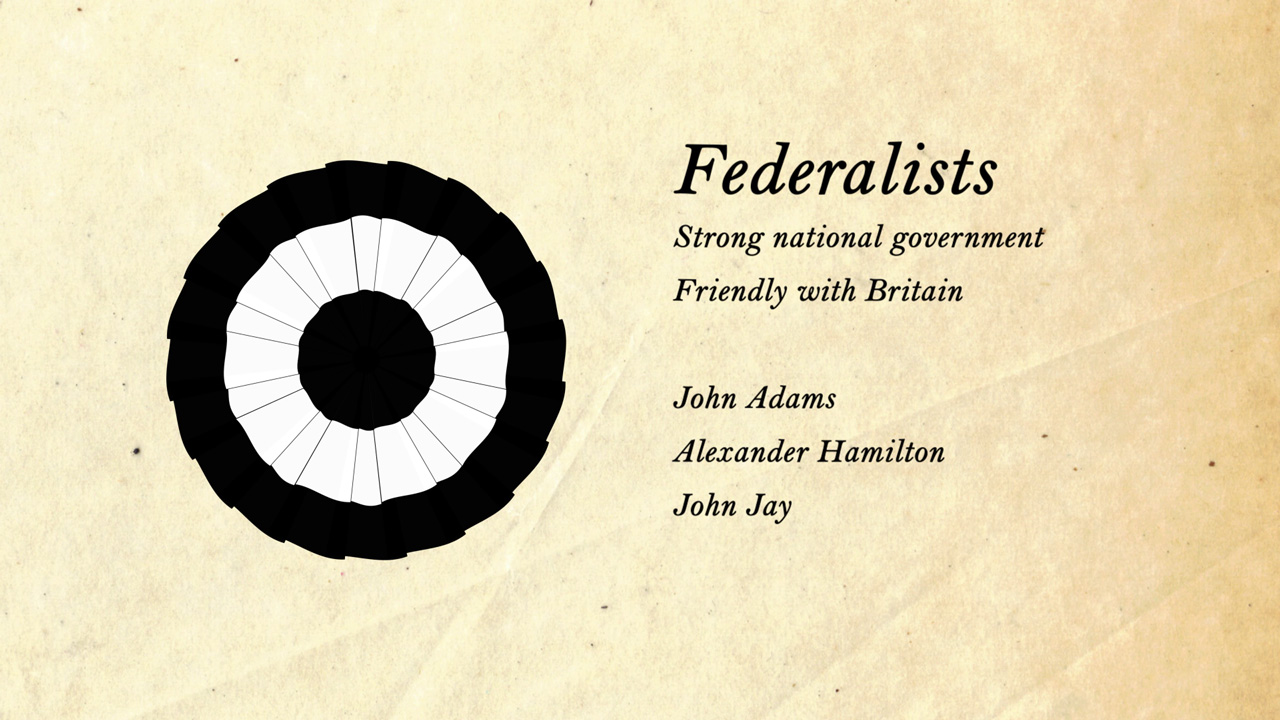
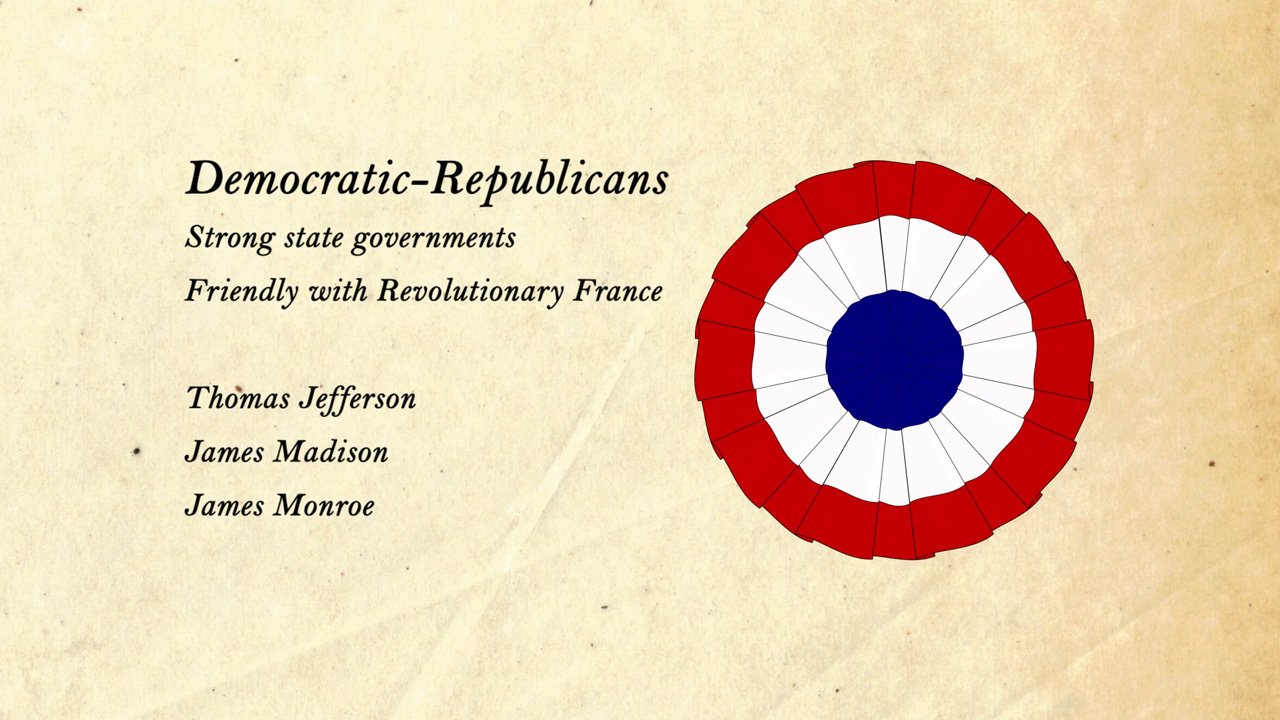
Part Seven: Aaron Burr, Sir
We haven't talked much about Aaron Burr. Him and Hamilton are flip sides of the same coin, similar and different at the same time. While you can say that Hamilton came from nothing, Burr is the opposite, his father was the president of Princeton, though he did die in the year after Burr's birth. Both Burr and Hamilton joined the army, with Burr probably doing more actual fighting under general Montgomery and well, in summary, Montgomery got shot and Burr ran into the battlefield, trying to retrieve the body under fire. Though the villain of the Hamilton story, Burr, as a member of the New York assembly, brought forward bills to increase women's rights, which can't really be said for all the founding fathers, and like Hamilton he was opposed to slavery, though they were unable to do very much about it given that the republic pretty much ran on it.
Burr becomes, in the years after the war, what we might call the first modern politician. When elections came up he was canvassing, going door to door, saying "you should vote for me". This was outrageously tasteless and ungentlemanly at the time, because other people should talk about how great you are, not you yourself. Burr was an opportunist, switching political parties and views fairly freely. Hamilton calls Burr an American Catiline (a figure in the Roman republic who tried to overthrow the state). That might not be a harsh insult to us today, but these founding fathers went to college in an era when that meant that you were steeped in the classics, and the influence of Greek and Roman thought is apparat in everything they do. So to them, if you call someone a Catiline it's very obvious what you mean: They cannot be trusted.
Burr runs against Jefferson in the 1800 presidential election. Kind of. There's a deadlock which moves the choice to the House, where the Federalists have control. Now both Burr and Jefferson are Democratic-Republicans so there's not going to be a Federalist president either way but it's thought that Burr might be a better choice given that Jefferson is a divisive figure. The fact that federalists control the House means that Hamilton has a chance to change the stars for Burr and keep him out of the room where it happens.
Now Hamilton, to be honest, had a knack for making enemies. A lot of people hated him; he just wouldn't shut up. Even with his many enemies, Burr turns out to be Alexander Hamilton's nemesis. After another election where Burr believes Hamilton to have used his influence against him, Burr challenges Hamilton to a duel.
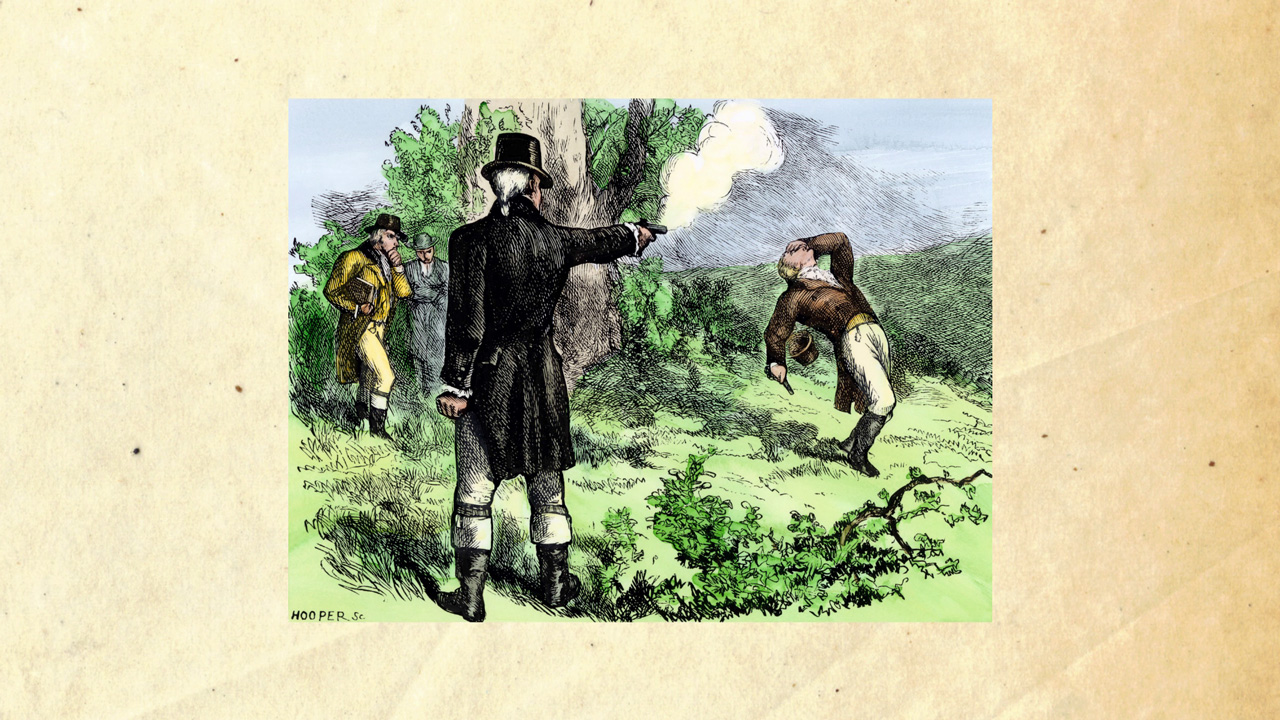
Hamilton accepts but does he throw away his shot? Supposedly, yes, but there were two gunshots. And yet as he's taken home, drying, Hamilton tells those around him to be careful with his gun, stating that it's still cocked, seemingly indicating that he believed that he did not fire. It's likely that both the pro-Hamilton and pro-Burr sides twisted the story a bit after the fact but what we know for certain is that Hamilton died and Burr was politically dead, even though he apparently showed remorse immediately. He would refer to his Hamilton as "my friend Alexander Hamilton who I shot."
If you read up on Burr, some of the things he got up to afterwards are hard to believe, but I'll leave you with this: Burr married an heiress and they later fell out and had a divorce that didn't leave Burr with much. And maybe it's appropriate, it almost has a touch of fate, but her representation in the divorce was an eminent lawyer: Alexander Hamilton, Jr.
Conclusion
That pretty much concludes the historical context I'm giving today but there are a few things I'd be remiss not to mention. First of all there's the cat thing. I have to mention it just because Lin-Manuel Miranda turns to the audience and says "That's true" even though he knows it isn't! This is pretty much indicative of all the inaccuracies in the story. They're all there to make the story more tight and entertaining.
Then there's love triangle with the Schuyler sisters. It's true that Angelica and Alexander were very fond of each other but there's no evidence of a romantic affection and, more importantly, she was married before she ever met Hamilton. In fact Philip Schuyler have 15 children, some of which are sons, making Angelica's line about how she's the oldest and has to marry for money completely untrue. On this point Lin-Manuel Miranda himself says "I forgot and I think my brain wanted me to forget because it's stronger, dramatically if societally she can't marry him."
If you want to dig deeper into the real history I recommend the book Founding Brothers by Joseph J. Ellis, and if you like podcasts I think you would enjoy Reel History where I co-host with two people much more knowledgeable about history than myself and we discuss the true story behind movies and television shows. Just search for Reel History on your podcatcher of choice.
Jakob Burrows
Text published March, 2021
Video published July, 2020
